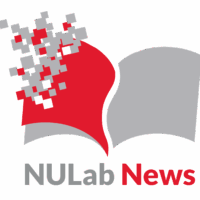NULab faculty Tina Eliassi-Rad recently co-created a new AI tool that “uses sequences of life events — such as health history, education, job and income — to predict everything from a person’s personality to their mortality” (Mello-Klein, Northeastern Global News, 2023). Her innovative work has now been covered in a number of prominent news outlets, such as The Boston Globe, Forbes, the Milwaukee Journal Sentinel, and the Irish Star.
The AI system is called “life2vec” and is a “large language model” built on the same principles of ChatGPT; it can process large amounts of data and identify patterns that may be less visible to human investigators. Tina Eliassi-Rad comments, “We now live in an era where we can look at all the data all at once” which “means you can pay attention and learn correlations between every piece of data we have.” For example, Life2vec’s ability to estimate mortality could also be used to figure out best behaviors for good health (Bray, The Boston Globe, 2023).
As the AI was trained on the personal data of the Danish population, who presumably live differently than people who live elsewhere, the program wouldn’t work accurately for, say, U.S. residents (Bray, The Boston Globe, 2023). However, Eliassi-Rad argues that “regardless, tools such as life2vec should be used to track societal trends, not predict individuals’ outcomes” and that “even though we’re using prediction to evaluate how good these models are, the tool shouldn’t be used for prediction on real people,” because “real people have hearts and minds” (Snider, Milwaukee Journal Sentinel, 2024). Eliassi-Rad and co-author Sune Lehmann also note that “although the model makes highly accurate predictions, they are based on correlations, highly specific cultural and societal contexts, and the kinds of biases that exist in every data set” (Loftus, Irish Star, 2023).
Along with the excitement of new AI model, Eliassi-Rad urges ethical considerations in its application: “Responsible AI and Ethics is a core research arm in enabling AI innovation, as researchers must develop a full understanding of the risks associated with collecting sensitive data and using AI. This has been a focus of Professor Eliassi-Rad” (Bean, Forbes, 2024).
You can read a full summary of the project on Northeastern Global News here.


